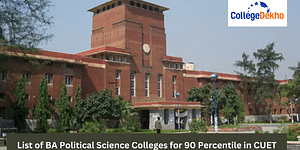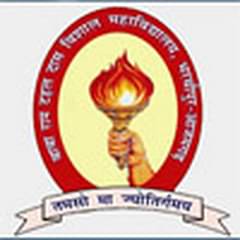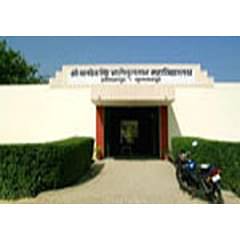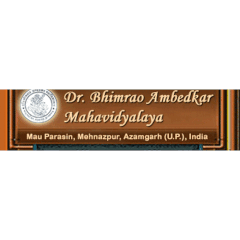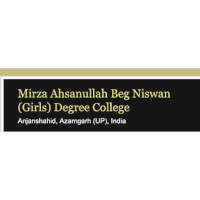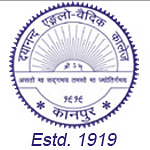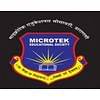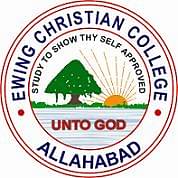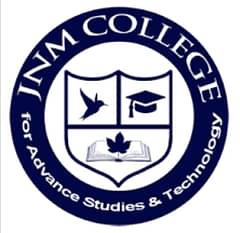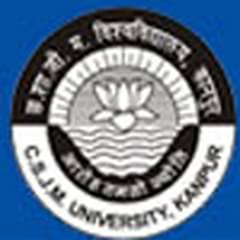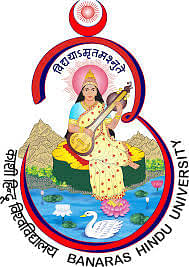Shri Durga Ji PG College BSc : Fees, Courses, Eligibility & Admission 2024
- 1 ReviewsAzamgarh (Uttar Pradesh)
- Government Aided
- Approved by : NCTE
Shri Durga Ji PG College BSc is a 3 Years programme offered in specializations like Agriculture, Mathematics, Chemistry, Physics, Geography. The course duration of BSc at Shri Durga Ji PG College is 3 Years. The BSc degree helps students to gain profound knowledge and skills that will help them to tackle the real world challenges.
Interested in applying for this course? Visit the official website and submit the application. Shri Durga Ji PG College BSc admission is offered on the basis of the merit of the qualifying exam.
Once the admission criteria are met, one needs to confirm their admission by paying the Shri Durga Ji PG College BSc course fees and getting the documents verified.
7 Courses are offered by Shri Durga Ji PG College
Bachelor of Science in Agriculture
Bachelor of Science in Chemistry
Bachelor of Science in Physics
Bachelor of Science in Mathematics
Bachelor of Science in Geography
Bachelor of Science in Zoology
Bachelor of Science in Botany
Shri Durga Ji PG College BSc Highlights 2024
| Particulars | Details |
| BSc specialisations | 7 |
| Mode of Study | Offline |
| Duration | 3 Years |
Shri Durga Ji PG College BSc Eligibility Criteria
Prior to applying for the course it is a mandate for the aspirants to meet the Shri Durga Ji PG College BSc eligibility criteria. After ensuring that the eligibility criteria is met, submit the application form. One can check the Shri Durga Ji PG College BSc admission criteria which has been tabulated below.
Shri Durga Ji PG College Eligibility Criteria for BSc
| Degree | Eligibility Criteria |
| BSc | To be eligible for a BSc degree at Shri Durga Ji PG College, Azamgarh, candidates must have completed their 10+2 education with a minimum aggregate of 50% in the science stream. Additionally, they must have studied subjects like Physics, Chemistry, and Mathematics/Biology as part of their curriculum. Candidates may also be required to pass an entrance exam conducted by the college to assess their knowledge and aptitude for the course. Meeting these criteria will ensure that students have the necessary foundation to excel in their BSc program at Shri Durga Ji PG College. |
Shri Durga Ji PG College BSc Admission 2024
Admission to the BSc at Shri Durga Ji PG College is subject to meeting the eligibility criteria. All shortlisted candidates have to complete the Shri Durga Ji PG College BSc admission process by getting their documents verified and paying the admission fee.
Shri Durga Ji PG College BSc Application Process
Shri Durga Ji PG College BSc application form has to be submitted online by visiting the official website. Candidates aspiring to take admission to the BSc course at Shri Durga Ji PG College have to first check and meet the eligibility criteria and then proceed further with the application process.
Steps to fill Shri Durga Ji PG College BSc application form:
- Step 1: Visit the official website of Shri Durga Ji PG College and click on ‘apply online’.
- Step 2: Now, you will be redirected to the admission page of Shri Durga Ji PG College. Complete the registration process and create a profile.
- Step 3: Fill in all details available in the Shri Durga Ji PG College BSc application form.
- Step 4: Now pay the Shri Durga Ji PG College BSc application fee and click on submit button.
- Step 5: After the submission, keep a hard copy of Shri Durga Ji PG College BSc Application Form.
Documents Required for Shri Durga Ji PG College BSc Admission:
- Marks sheet of class 10th standard
- Marks sheet of class 12th standard
- Transfer certificate (if required)
- Character certificate
- Passport-size photographs
Top Courses at Shri Durga Ji PG College
Shri Durga Ji PG College Reviews
Overall: It is very good college. College fees is so cheap. Because of government college. All facilities available there. There is also library,wifi, water, toilets, cctv, etc.
Placement: 1. Agribusiness firms: Students may find placements in agribusiness companies involved in areas such as crop production, animal husbandry, food processing, and agricultural inputs. 2. Farming and agriculture management: Placements on farms or with agricultural enterprises allow students to gain practical experience in crop cultivation, livestock management, and farm operations. 3. Agricultural research organizations: Students may secure placements with research institutions, government agencies, or non-profit organizations engaged in agricultural research and development projects. 4. Government agencies: Placements with government departments related to agriculture, such as departments of agriculture, rural development, or environmental agencies, offer opportunities to work on policy development, extension services, and regulatory compliance. 5. International organizations: Some students may secure placements with international organizations working on agricultural development projects, food security initiatives, or environmental conservation efforts globally. 6. Agri-tech startups: With the rise of technology in agriculture, students may find placements with agri-tech startups involved in areas such as precision agriculture, farm management software, agricultural drones, and sustainable farming technologies. Agriculture colleges often have dedicated placement cells or career services offices to facilitate these placements by connecting students with potential employers, organizing recruitment drives, and providing career counseling and support. The availability and success of placements can vary depending on factors such as the reputation of the college, the demand for agricultural professionals in the job market, and the students' skills and interests.
Infrastructure: An Agriculture College typically offers programs focused on various aspects of agriculture, including crop production, livestock management, soil science, agricultural economics, agribusiness, and sustainable agriculture practices. These colleges provide hands-on training, research opportunities, and theoretical knowledge to students interested in pursuing careers in agriculture, farming, agribusiness, and related fields. Additionally, they often collaborate with industry partners and research institutions to address contemporary challenges facing the agricultural sector.
Faculty: 1. Expertise: Reviewers may comment on the faculty's depth of knowledge and expertise in their respective fields of study, particularly in areas such as crop science, animal husbandry, agricultural economics, and sustainable agriculture. 2. Teaching Quality: Students often assess the effectiveness of faculty members in delivering course material, engaging students in discussions, and providing practical hands-on learning experiences. 3. Accessibility: Reviews may mention the availability of faculty members for one-on-one discussions, academic advising, and support outside of class hours. 4. Research Contributions: Faculty members' research activities, publications, and involvement in agricultural research projects may also be evaluated, particularly for their impact on advancing agricultural science and addressing real-world challenges. 5. Mentorship: Positive reviews often highlight faculty members' mentorship and guidance, both academically and professionally, in helping students navigate their academic and career paths in the agricultural sector. Overall, faculty reviews provide valuable insights for prospective students and stakeholders in assessing the quality of education and support provided by the faculty in an agriculture college.
Explore More Engineering Colleges in Uttar Pradesh
By Degree
By Specialization
- Colleges in Azamgarh
- Shri Durga Ji PG College
- Courses
- B.Sc. (Bachelor of Science)




